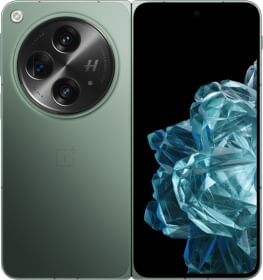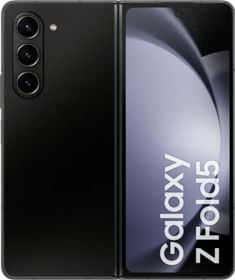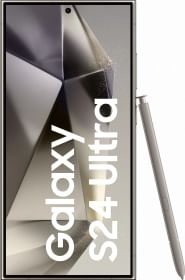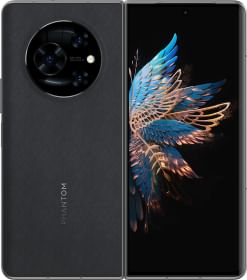On February 29, 2024, Elon Musk, the CEO of Tesla and SpaceX, filed a lawsuit against OpenAI, one of the world’s most popular and Microsoft-backed AI startups. In the lawsuit, which is available for public review, Musk alleges that OpenAI, under the leadership of Sam Altman, has breached its founding agreement. As mentioned in the lawsuit, OpenAI’s founding agreement was to remain a “non-profit developing AGI for the benefit of humanity, nor for a for-profit company seeking to maximize shareholding profits.” Further, the agreement also states that the company will maintain its open-source nature.
The Lawsuit Alleges OpenAI Has Breached Its Founding Agreement
The lawsuit highlights how OpenAI’s initial research was performed in the open, providing public access to design, models, and codes. This is indeed true for the first three GPT models, which came out in 2018, 2019, and 2020. However, with GPT-4, the company didn’t publish a technical paper, which Musk regards as a significant breach of the initial agreement. “GPT -4’s internal design was kept and remains a complete secret except to OpenAI — and, on information and belief, Microsoft,” highlights the document submitted to the court. Building up on this, Musk’s lawsuit calls GPT-4 a “de facto Microsoft proprietary algorithm.”
This Corporation shall be a nonprofit corporation organized exclusively for charitable and/or educational purposes within the meaning of section 501(c)(3) of the Internal Revenue Code of 1986, as amended, or the corresponding provision of any future United States Internal Revenue law. The specific purpose of this corporation is to provide funding for research, development and distribution of technology related to artificial intelligence.
Certificate of Incorporation for OpenAI via Musk’s lawsuit
How Could This Affect Microsoft Ties With OpenAI?
In September 2020, Microsoft signed a deal with OpenAI, granting it an exclusive license to the technologies developed by the AI startup until they successfully developed AGI. In exchange, Microsoft provided the company with the computing power and funding it required at that moment. In this context, Musk accuses that GPT-4 “is an AGI algorithm.” The lawsuit cites an excerpt from Microsoft’s research, stating that the breadth and depth of GPT -4’s capabilities can be viewed “as an early (yet still incomplete) version of an artificial intelligence (AGI) system.”
The lawsuit mentions two implications of this. First, OpenAI is using GPT-4 to earn money (selling it to enterprises and regular users via a paid subscription model), which goes against the founding agreement of keeping the company a non-profit organization. Second, it states that Microsoft shouldn’t use GPT-4 since it’s a near-complete AGI model. It is important to mention here that as part of the deal between OpenAI and Microsoft, the former non-profit board has the power to determine when it has reached a realistic AGI model.
ALSO READ: New York Times Sues Microsoft And OpenAI Alleging Infringement On AI Chatbots
Was Altman’s Sudden Departure From OpenAI Related To Premature Development Of AGI?
The lawsuit also linked this with the sudden ouster of Altman from his position in the company last year. It also claims how Altman hand-picked his board members after his return. Back then, the top management and Altman had different opinions about AI security. The board states how Altman was consistently candid in his communications. Around the same time, we heard rumors about OpenAI’s major AI breakthrough, Q*, and the potential security issues related to it (including human-threatening capabilities), to be the reason behind Altman’s ouster. However, we can’t confirm any of these independently.
“This case is filed to compel OpenAI to adhere to the Founding Agreement and return to its mission to develop AGI for the benefit of humanity, not to personally benefit the individual Defendants and the largest technology company in the world [Microsoft],” reads point 33 of the lawsuit. From what it sounds like, Musk wants OpenAI to return to its non-profit, open-source AI lab.
OpenAI Has Published A Few Conversations With Musk
In response to the lawsuit, OpenAI has published an elaborate blog post, sharing what it has learned about achieving its mission and its relationship with Musk. It might surprise some readers, but Musk was one of the founding members of OpenAI. The blog mentions how Greg and Sam initially planned to raise $100M for the company, but Musk advised them to raise $1B instead. “We all understood we were going to need a lot more capital to succeed at our mission — billions of dollars per year, which was far more than any of us, especially Elon, thought we’d be able to raise as the non-profit.”
In its blog, OpenAI mentions how the team and Elon realized that a “for-profit entity would be necessary to acquire those resources.” In 2017, both parties decided to create a for-profit entity, which potentially involved selling the company’s products/services to earn some money to help develop AGI. However, Elon wanted majority equity, initial board control, and to be the chief executive. In response, the other team members stated it was against the company’s mission to provide one individual with absolute control. “In the middle of these discussions, he withheld funding,” states OpenAI.
ALSO READ: ChatGPT 5 Expected Launch Date, Features, And More
Following the disagreements, Elon decided to leave the company in February 2018. In contrast to Elon’s claims about the company being an open lab for the development of AI, OpenAI mentions in its blog that one of the scientists already told Elon about not open-sourcing AGI.
As Ilya told Elon: “As we get closer to building AI, it will make sense to start being less open. The Open in openAI means that everyone should benefit from the fruits of AI after its built, but it’s totally OK to not share the science…”, to which Elon replied: “Yup.”
Even So, A Few Questions Remain Unanswered
However, this raises more questions than answers. As the company’s initial mission was to develop AI in an open environment, why didn’t it disclose its plans to start “bring less open,” which the company mentions writing in an email to Musk? Further, if OpenAI already decided that they won’t share the science behind AGI with everyone, and they haven’t shared the research behind GPT-4, does it indicate that the company regards GPT-4 as being close to AGI?
OpenAI’s email conversations with Musk, available in the blog post, reveal that he favored creating a for-profit model that will help the company’s long-term funding problems. However, it doesn’t seem to address the main issues mentioned in the lawsuit. It is important to mention that this article aims to explain to readers what’s happening between the companies, along with some context about what could have led to the current situation. However, if we’ve missed any detail, please reach out to us to get it incorporated into the story.
You can follow Smartprix on Twitter, Facebook, Instagram, and Google News. Visit smartprix.com for the most recent news, reviews, and tech guides.































